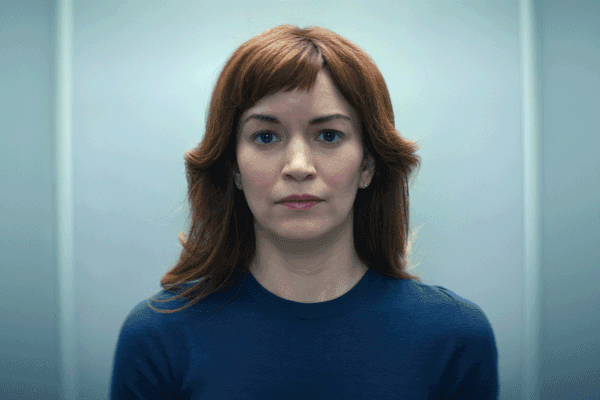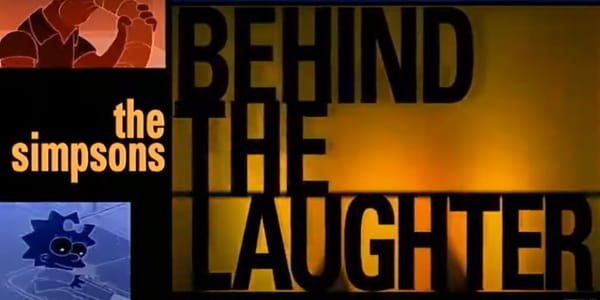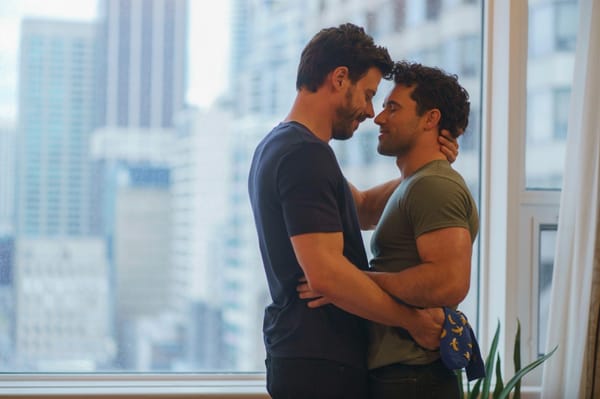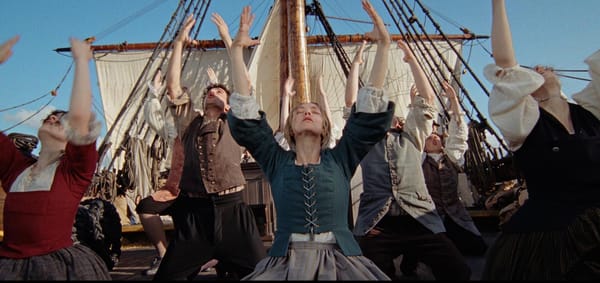So what is it about Cats?
Thoughts on the cinematic catasterpiece of our time.
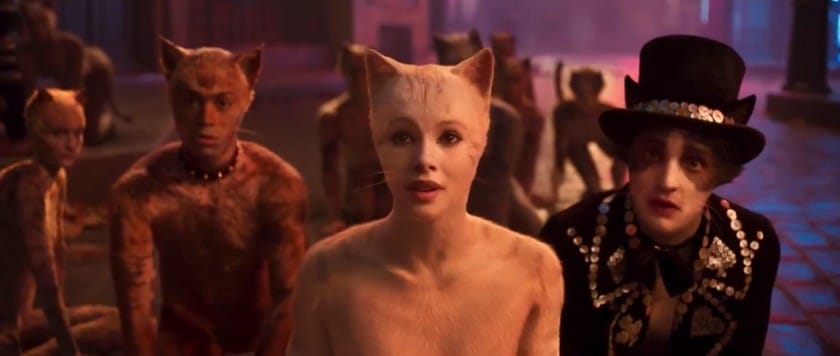
Over the weekend, it was my great honor and privilege to introduce even more friends to one of my favorite films: Tom Hooper’s 2019 cinematic adaptation of the Andrew Lloyd Webber musical Cats. To say they hated it would be an understatement. It was as if their brains rejected it. It was like they were the Hosts in Westworld, watching what was clearly a movie, airing on their television, saying, “It doesn’t look like anything to me.”
I guess I would say that I love Cats. But “love” feels like both too strong and too weak a word for my feelings on the film. This is a movie where when I recommend it to people, I explicitly say do not pay money to see this movie — and yet I think you probably should watch it anyway. (I have seen it thrice and paid for it none of those times, thanks to the magic of film criticism.) It looks like a nightmare. No, better, it looks like something a cat coughed up. The experiences I’ve had screening it have been some of the best I’ve ever had.

I’ve talked a lot about this with my good friend, the terrific critic Angie Han, who writes at Mashable and honestly might be the critical community’s chief Cats defender. (She is my nominee to write the inevitable critical essay in the Cats Criterion release.) Angie, my friend Lindsay, and I all watched Cats together at the first Los Angeles press screening, and it was honestly one of the most magical press screenings I’ve ever seen — right up there with when I got to see Mad Max: Fury Road super early. By the time the film rolled around to “Magical Mr. Mistoffelees,” the audience full of hardened, cynical critics was in the palm of the movie’s hand. We were clapping. We were laughing. We were having a great time.
You would not know this to read the reviews. The reviews largely panned the film for being an abject failure at best, a cinematic abomination at worst. The catastrophic decision to cover all of the actors in digital fur led to a movie that doesn’t just get trapped in the uncanny valley but one that decided to move there of its own volition, as though drawn in by the cheap rents and hoping to gentrify. Yet “cheap rent” is a misnomer, because this thing cost so much money.
One of the friends I watched Cats with has this running bit where he imagines the people who worked on the movie — not the actors or director or people who saw where all of this was going, but the workaday folks who were just, like, the key grips and the visual effects technicians below the line — seeing the film for the first time. “Months and months of work for this,” he says, and it’s funny because, well, months and months of work for this.
So when people say, “Cats is bad,” I get it. Believe me. But when people act like Cats is an unalloyed catastrophe, or when it wins six Razzies (six!), or when it becomes shorthand for the worst cinema has to offer — well, that’s where I draw the line, folks!
So if it’s easy to understand what’s so bad about this movie, what is it about it that has drawn in an increasingly large, increasingly vocal cult audience? Why are people packing rowdy screenings of the film at Alamo Drafthouses and having such fun with the movie all over the internet? Why does this movie have a bigger cultural footprint than Star Wars Episode IX, which launched the same day and was a much bigger hit?
The answer, I think, is that Cats is about Cats.
The most common question people have about Cats — even without having seen it — is “what’s it about?” And by the time you get to the movie, the answer to that question is about three levels deep. The T.S. Eliot poems that gave Andrew Lloyd Webber’s music their lyrics are mostly just silly observations about how cats are, for instance, indecisive, or how they might seem to appear from out of nowhere, or how they knock lots of shit over. But there are also some coded references to British attitudes of Eliot’s day, and all of the cats are fond of explaining (over-explaining!) which neighborhoods they live in in London. I imagine if I were a stronger student of Depression-era London, I would understand what he’s going for here.
What Webber’s musical does is literalizes everything. “Mr. Mistoffelees” is no longer just a cat who appears as if from out of nowhere. He’s literally magical. “Macavity” is no longer just a bad cat. He’s a criminal. And on and on. When Harold Prince asked Webber what the show was about and famously received Webber’s answer, “It’s about cats, Hal,” that’s more or less the level the composer was operating on. He had always enjoyed the poems, and he wanted to transmit the whimsy he felt to everybody. He did so, as Webber so often does, by piling a bunch of stuff atop a structure not really built to support it.
But all of that stuff made the musical a huge hit. The stage had never seen anything quite as big or spectacular, and producer Cameron Mackintosh was a genius at making the show seem like a must-see. Plus, if nothing else, the dancing was really spectacular, so if you were thrown by the fact that the play is literally two hours of cats introducing themselves before one of them dies, you could focus on the intricate choreography, a thing the movie mostly obscures by having no idea how to shoot any of it.
So Cats is already a literalized copy of something else. But that makes Cats the film a copy of a copy. Indeed, here’s Tom Hooper telling David Sims of The Atlantic as much:
In terms of what worked for me as a kid, I really enjoyed the sense of going through the portal and being told, “We cats don’t give a shit about you, but on this special night we’re going to let you in on the secret.” That sense of being an initiate into a secret world felt analogous to being let into the adult world for an evening. It was quite a sexy show—if they weren’t cats, would you be taking an 8-year-old? One of the things I found special was to be able to be guided in my choices as a director by my vivid recollection of Cats at 8.
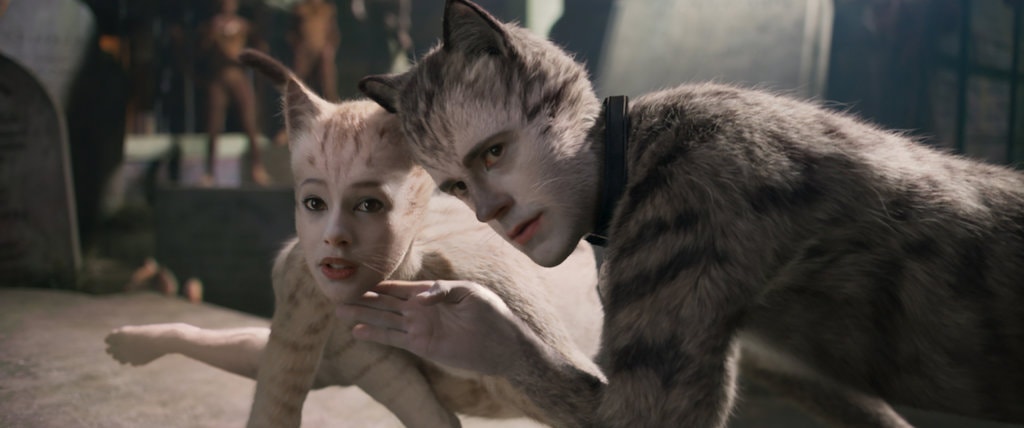
Cats takes an already literalized retelling of Eliot’s poems and literalizes it further. There are next to no lyrics in the show that aren’t directly depicted on screen. Early in the first number — “Jellicle Songs for Jellicle Cats” — the cats sing about being familiar with candle, with book, and with bell, and then one of them bongs an actual bell. Later, when they sing about the Pharaoh commissioning the Sphinx, a cat gestures to a vehicle labeled “SPHINX.” And on and on. It really does feel like an 8-year-old child, listening to the original cast album and imagining exact visual references to everything in the lyrics.
It’s this recursive quality that I’m convinced the movie’s fans respond to, because while it didn’t make for a good movie, it made for a weirdly pure movie. Like it or not, this is the movie Tom Hooper wanted to make, and it’s a movie built almost entirely around trying to recapture feelings he had long ago that he can no longer hold onto. As such, it functions as a poison nostalgia Valentine and a weird auto-critique of nostalgia. It’s like the 2019 Lion King remake gone horribly wrong yet somehow clinging to its sense of self.
What makes all of this work is that Cats, as a property, already feels like an 8-year-old telling you about their favorite musical. So when the movie never finds a gear beyond, “A bunch of cats tell you their whole deal,” it kind of works, because the whole story has the breathless “And then…” feeling of a child who barely understands story structure trying to tell you something very important and forgetting about half of it. The story of the musical is slapdash at best; the movie wouldn’t know how to tell a story any other way.
At first, I thought the common thread between fans of the film might be having at least a passing familiarity with the stage musical. But Angie Han, for instance, had never seen the musical and was unaware the plot of the film was “Cats introduce themselves until one of them dies” until I told her as such. And, again, she is going to be writing that critical essay someday. So I think the common denominator among the movie’s fans is that they’re able to tap in to that quality of weird childishness that Hooper accidentally created, that feeling that he’s just throwing stuff out there to see what will stick.
Now, granted, the movie’s detractors more than have a point. The visual effects are terrifying, even as they look like nothing else out there, and Rebel Wilson seems like she’s wandered in from a 2003 Dreamworks Animation film with how often she pops up to make awful cat jokes. There’s a winking knowingness to some of the performances — particularly from Wilson and James Corden — that cuts against Hooper’s utter lack of irony. And, as my wife said when watching the movie again, “How can this be so boring?” If you don’t vibe on the music (particularly the synth), this is going to be a painful watch for you. Again, this is not a good movie, but it is something almost better than that, which is so utterly itself that it dares you to like it.
There is a certain kind of person who sees a work of art so utterly misconceived, so desperate to push you away, that said person works all the harder to be drawn in to that art’s embrace. I am one of those people, and so are most of the fans of Cats, I think. I like to feel like when I really love something, I’m winning a victory over myself, over my common sense, over my logic.
But the more common reaction is, of course, that of my wife, or that of my friends, who alternately fell asleep two-thirds of the way through and ended the film saying, in bafflement, “What was that even about?” The point of Cats is to follow it down a wormhole constructed entirely of the movie and its source material. It loops back in on itself, over and over and over again, inviting you to plunge into the maelstrom. To enjoy it, you must let go of yourself. To love it, you must let go of reason entirely. But, on some level, isn’t that love in a nutshell?
In summation: Cats is the most important artistic work of our time, and I will not hear otherwise.
Talk back in comments: Did you know these newsletters have comments? Well, they do! Tell me in comments how you feel about Cats. Positive answers only!!! (No, negative answers are also acceptable. I somehow didn’t unfriend all of my friends who didn’t like the movie, though I thought about it.)
What I’ve been up to: I published quite a few things last week, but they all pale in comparison to WHAT DAY IS IT TODAY?, my earth-shattering work that informs you what day it is today and is updated daily. (Yes, I have to manually update it.) Some folks who’ve been reading me for a while say this post has big AV Club energy, and you know what? I don’t disagree.
To live inside is to lose distinction. There is a numbing effect that occurs when each day is the same, when our schedules are subsumed by what feels like an endless gulf of undifferentiated time. And yet isn’t this how so many of the less privileged around the world, forced to work jobs involving menial labor, day after day after day, already live? Isn’t this why we invented the weekend? Has this quarantine simply shown to those of us with more economic privilege that our “free time” was always a mirage, which could disappear before our eyes, by giving us so much “free” time?
Read me: This Washington Post account of a woman’s death from coronavirus, as told by her quarantined husband, is deeply heartbreaking and, I think, necessary. It’s so hard to wrap our brains around the immensity of what’s happening right now, so these small, personal stories help me with that.
She transported cars for a rental company. That’s where all this must have come from. People fly in from somewhere for a meeting and fly out a few hours later. You’ve got germs from all over the world inside those cars. I didn’t like the fact that she was working so hard, 69 years old and still climbing in and out of Ford Fusions all day, driving from Indianapolis to St. Louis and back with bad knees, bad hips, diabetes, and all the rest of it. Sometimes, she hurt so much after work I had to help her out of the car. I guess I should have told her to quit, but nobody told Birdie anything. She liked to drive, and we needed the money.
Watch me: I’m really digging the YouTube channel of Patrick H. Willems right now. If you’ve never seen his stuff before, it’s all worth checking out, but I would point you in particular to this video about the life and work of Robert Zemeckis and this one breaking down a perfect Simpsons episode (though I think Willems perhaps overpraises “Lemon of Troy”!!!).
And another thing… If you’ve read me lo these many years, you know that I do love a good board game. The website Board Game Arena is one of the best ways to play board games online — against friends, if you like! — that I’ve found. It’s free, but you can unlock certain features with a premium subscription, which is just $24 annually.
This week’s reading music: “Only Songs,” The Wild Reeds
Episodes is published once per week and is about whatever I feel like that particular week. Suggest topics for future installments via email or on Twitter. Read more of my work at Vox

